This article breaks down the similarities and differences between flaxseeds vs chia seeds and why this plant-based dietitian thinks you might want to consider eating them more often. You’ll also find some easy ways to incorporate them into your diet and a few delicious recipes.
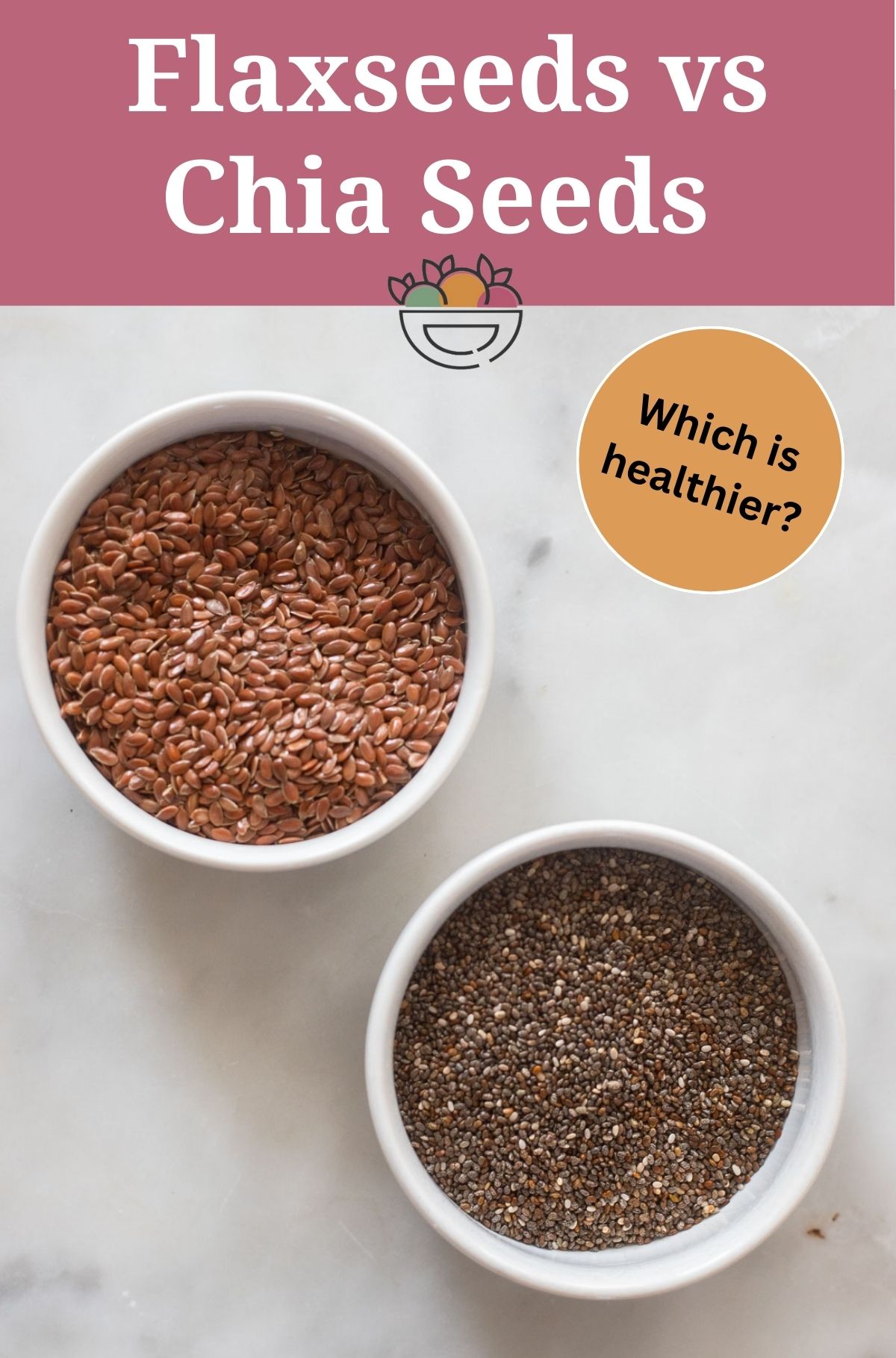
Trends like seed cycling and the viral Tiktok “internal shower” may have you wondering about the health benefits of seeds like flax seeds and chia seeds.
As a dietitian who specializes in plant-based nutrition, I love both chia seeds and flax seeds since they are full of protein, dietary fiber, heart healthy fats, and phytonutrients. However, it can be hard to decide which one to spend your money on at the grocery store since these tiny seeds can be expensive. Are they worth it?
This article breaks down the similarities and differences between flax seeds and chia seeds and why you might want to consider eating them more often. We’ll also review how to incorporate them into your diet so you can decide which one is right for your nutrition goals.
What are Flax Seeds?
Flax is a food and fiber crop that has been cultivated for hundreds of years in ancient Egypt and China. It has also played a role in ayurvedic medicine in Asia for thousands of years. Flax seeds are often called a “functional food” because they offer many potential health benefits. They have a mild, slightly nutty flavor so they are easy to incorporate in a variety of recipes.
Flax seed is available in a variety of forms including whole seeds, flaxseed oil, capsules, powder, flour, and tablets.
What are Chia Seeds?
Chia seeds are small black and white seeds from the plant Salvia hispanica L.The origin of these small seeds has been linked to Central America. Like flax seeds, chia seeds are also considered a “functional food” or “superfood” due to their many proposed health benefits.
Chia seeds have the unique ability to absorb water so that they double in size and soften. They are available as whole seeds in the store.
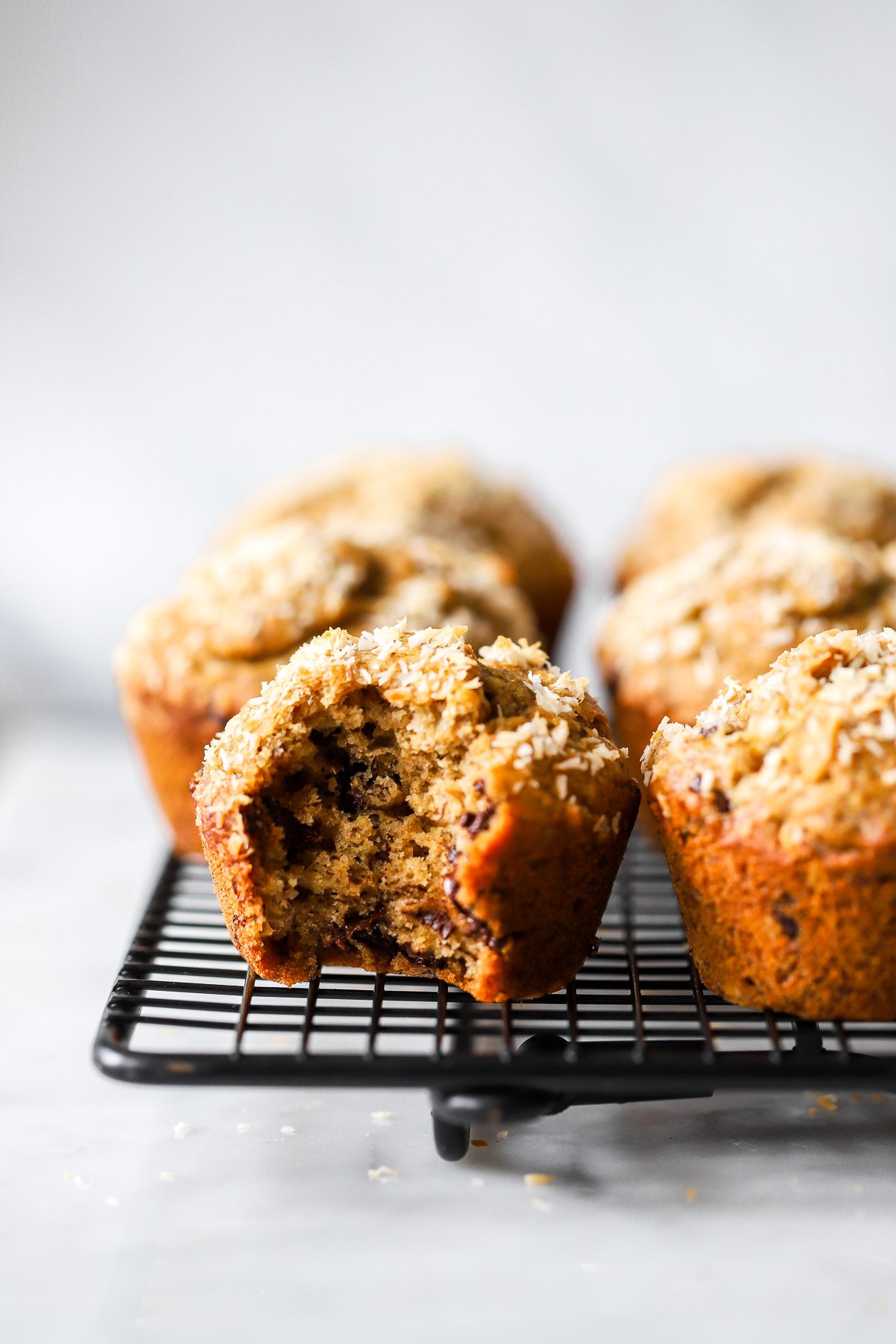
Nutrition Comparison
Both flax seeds and chia seeds are packed with nutrients like fiber, protein, and heart healthy fats. Here is a side-by-side comparison of the nutrition for each.
Chia Seeds (2 Tablespoons, 26 grams)
- 130 Calories
- 10 grams Carbohydrates
- 10 grams Fiber
- 7 grams Fat
- 2.5 grams Alpha-Linolenic Acid (ALA)
- 6 grams Protein
- 132 mg Calcium
- 2 mg Iron
- 95 mg Magnesium
- 1.3 mg Zinc
- 0.176 mg Thiamine
- 14 mcg Folate
- 198 mg Potassium
- 244 mg Phosphorus
- 15 IU Vitamin A
- 0.142 mg Vitamin E
Flaxseeds (2 tablespoons ground, 17 grams)
- 74 Calories
- 8 grams Carbohydrates
- 4 grams Fiber
- 6 grams Fat
- 3.2 grams Alpha-Linolenic Acid (ALA)
- 2 grams Protein
- 35 grams Calcium
- 0.8 mg Iron
- 54 mg Magnesium
- 0.608 mg Zinc
- 0.230 mg Thiamine
- 12 mcg Folate
- 114 mg Potassium
- 90 mg Phosphorus
- 0 IU Vitamin A
- 0 mg Vitamin E
Health Benefits of Chia Seeds
- Gut Health: Just 2 tablespoons of chia seeds has 10 grams of total fiber so regularly adding them to your diet can help you easily reach your daily fiber intake. Eating a diet rich in fiber can lower your risk of colon cancer.
- Heart Health: Chia seeds are a good source of both heart healthy omega 3 fatty acids as well as soluble fiber which can help lower bad (LDL) cholesterol. Eating foods rich in ALA, the omega 3 fatty acid in chia seeds, can lower your risk of cardiovascular disease. Just 2 tablespoons of chia seeds provides more than 100% of the DRI for ALA.
- Blood Sugar Management: Although more research is needed to look into the effects of chia seeds specifically on blood sugar levels, we do know that eating more foods high in Insoluble fiber can help with better blood sugar management.
- Rich in Antioxidants: Chia seeds are rich in antioxidants like chlorogenic acid, caffeic acid, myricetin, quercetin. It is important to include antioxidant rich foods in your diet because they help fight the cellular free radical damage that can contribute to chronic disease.
- Bone Health: Chia seeds are a good source of several minerals (calcium, phosphorus, and magnesium) that support bone health.
Health Benefits of Flaxseeds
The nutritional benefits of flax seeds are best absorbed when you consume ground flaxseeds vs whole flaxseeds. You can purchase ground flaxseeds from the store or grind whole flax seeds with a coffee grinder or blender.
- Heart Health: Like chia seeds, flax seeds are also a good source of both heart healthy omega-3 fats as well as fiber (both soluble and insoluble fiber) which can help lower bad (low-density lipoprotein) cholesterol levels. Eating foods rich in ALA, the omega 3 fatty acid in chia seeds, can lower your risk of heart disease. Just 1-2 tablespoons of ground flaxseeds provides 100% of the DRI for ALA. Foods rich in fiber like ground flax seed may help lower blood pressure as well.
- Lower Risk of Cancer: Flax seeds are especially high in lignans which likely have potent cancer-fighting properties based on current research.
- Gut Health: Flax seed is rich in both soluble and insoluble fiber. These fiber support gut health by helping to eliminate waste more effectively and feeding healthy gut bacteria.
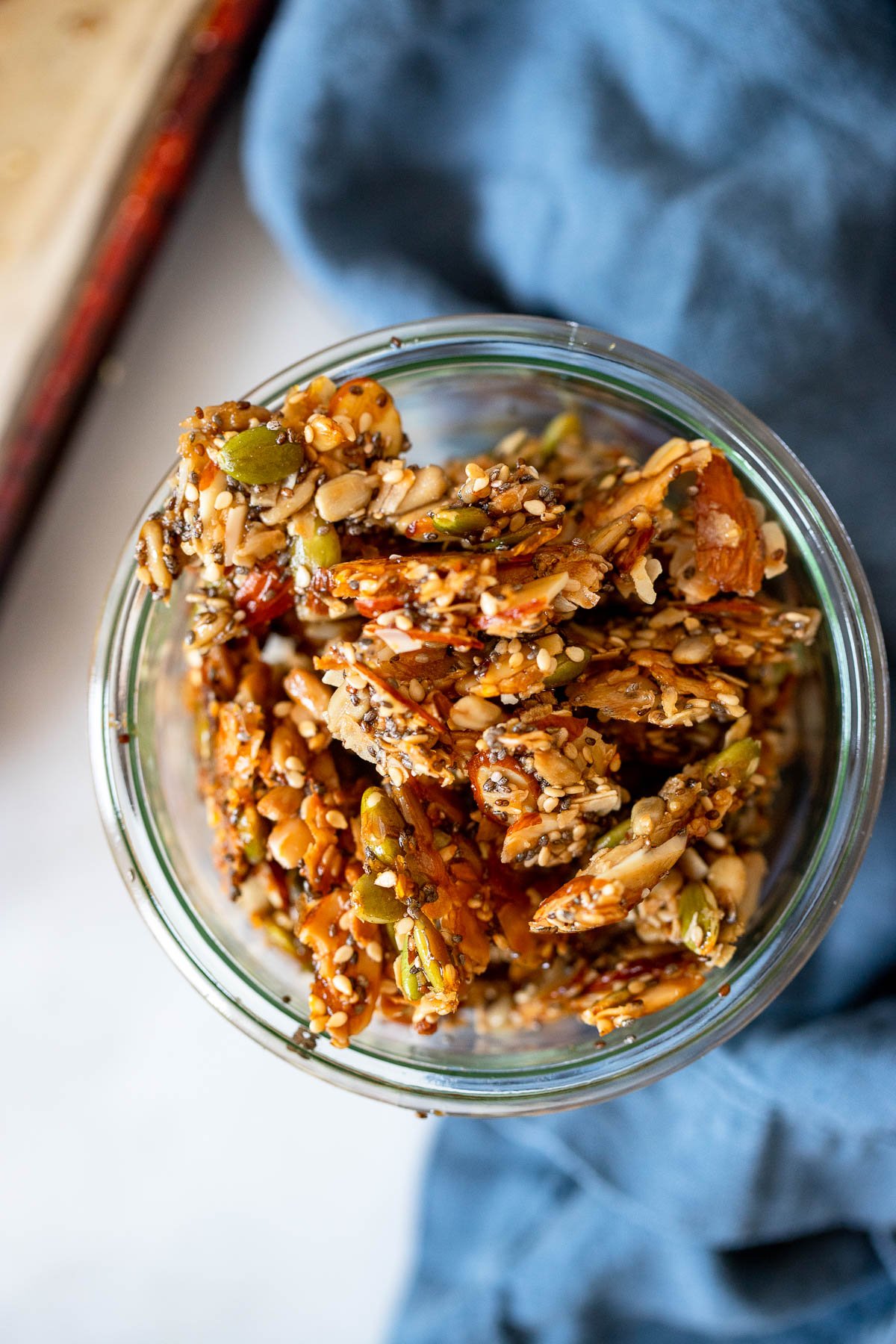
Which one should you choose?
The nutrient composition and overall health benefits of both chia seeds and flax seeds are similar. Either one can be a great addition to your diet.
- Nutrition: Looking more closely at the nutrition, you may want to choose chia seeds if more protein is your goal. (Chia seeds have 3x as much protein as flax seeds.) Chia seeds also have a higher fiber content if you want to increase your fiber intake (10 grams in chia seeds vs 4 grams in ground flax). Both are great sources of the plant based Omega 3 fatty acid ALA.
- Cost: Flax seeds are still relatively cheaper than chia seeds so if cost is a concern, you may want to purchase flax seeds. I did a quick cost comparison on Amazon and chia seeds were $0.66/oz and ground flax seeds were $0.47/oz.
Now that you know some of the health benefits of chia and flax seeds, let’s talk about some easy ways to incorporate more of them into your diet.
How to Eat Flaxseeds
- Add ground flaxseeds to baked goods to give it a boost of extra fiber.
- Ground flaxseeds can be used in baked goods as an egg substitute.
- Sprinkle some flax on your morning bowl of oatmeal or yogurt.
- Add some ground flaxseeds to homemade granola to help it clump together.
- Sprinkle ground flaxseeds onto toast.
- Add ground flaxseeds to your morning smoothie.
How to Eat Chia Seeds
- Add chia seeds to oatmeal or smoothies. I love adding chia seeds to my overnight oats.
- Sprinkle chia seeds on top of a bowl of yogurt with fresh fruit.
- Make a chia pudding by soaking chia seeds in milk overnight until it forms a gel-like pudding.
- Add chia seeds to smoothies before blending.
- Add chia seeds to homemade granola bars or bites.
- Add chia seeds to toast topped with nut butter.
How to Use Flaxseeds or Chia Seeds as an Egg Substitute
Flaxseeds and chia seeds can be used to make a substitute for eggs in baked goods. It’s great for anyone who is trying to adapt recipes to be vegan or egg free. Try it in quick breads, muffins, pancakes, waffles, and more. Here’s how to do it:
- Flaxseed: For 1 egg, combine 1 tablespoon of ground flaxseed and 3 tablespoons of water, mix with a fork to remove any clumps and let it sit for a couple minutes until it forms a gel.
- Chia Seed: For 1 egg, combine 1 tablespoon of chia seeds and 2 1/2 tablespoons of water. Mix well with a fork or whisk to remove any clumps and let it sit for a couple of minutes until thickened.
How to Store Flax Seeds
Unopened flax seed (ground or whole) can be stored in the pantry until ready to use. Once opened, it is best to store it in the refrigerator. Flax seeds are high in fat which can go rancid over time so storing your seeds in the fridge helps them last longer, especially ground flax seeds.
How to Store Chia Seeds After Opening
Store chia seeds in the refrigerator after opening to extend their shelf life. Like flax seeds, chia seeds are high in fat which can go rancid faster at room temperature.
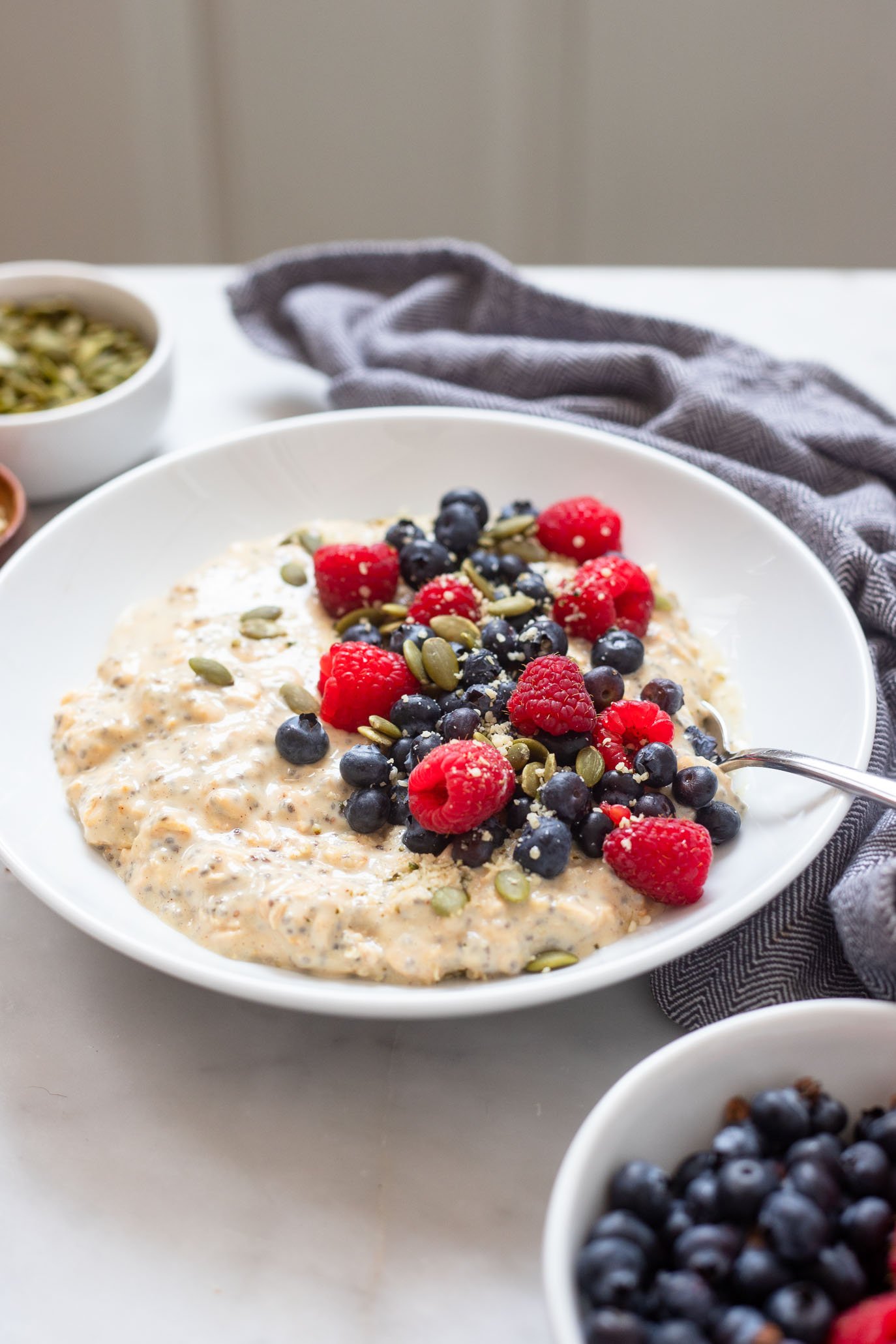
Frequently Asked Questions
Yes, since chia seeds are a naturally gluten free food so they are safe for those with celiac disease or gluten sensitivity to consume.
Yes, chia seeds are keto! Although they contain 10 grams of carbohydrates, you’ll see that they also contain about 10 grams of fiber so the net carbohydrate content is <1 gram.
Yes, flax seeds are naturally gluten free so they can be used in a variety of gluten free recipes. If you are very sensitive to gluten, you may want to purchase certified gluten free ground flaxseeds as there could be some cross contamination if processed in a factory with other products. If you purchase whole flax seeds, you don’t need to worry about cross contamination.
Yes – flaxseeds (whole or ground) can be frozen. Freezing flaxseeds can extend their shelf life as the high oil content can lead to spoilage when stored in the pantry.
The nutrient composition of both golden flaxseeds and brown flaxseeds is very similar so either one is a good option. In one study, golden flaxseeds were slight higher in essential fatty acids than brown flax seeds. On the other hand, brown flax seeds had more antioxidants.
Be sure to check out my other ingredient match up posts!
- Seitan vs Tofu: One has twice as much protein as the other. Read the post to find out which one it is!
- Pinto Beans vs Black Beans: Beans are a budget friendly super food that can be incorporated into a ton of great recipes.
- Blending vs Juicing: Both options are a great way to add extra nutrients to your diet – find out which one I prefer!
- Sunflower Butter vs Peanut Butter: Peanut butter is super popular, but there are so many other nut and seed butters on the market. Find out how sunflower butter stacks up.
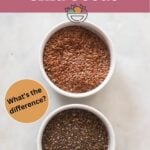
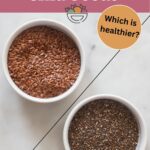
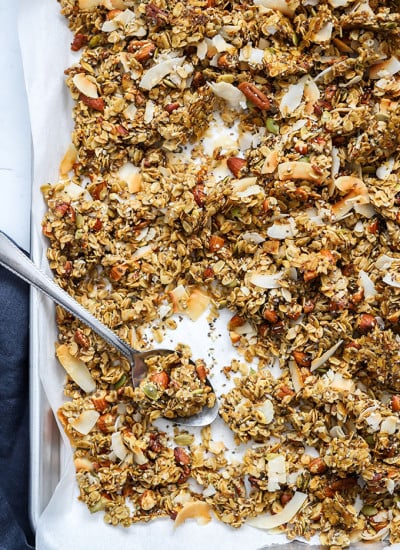
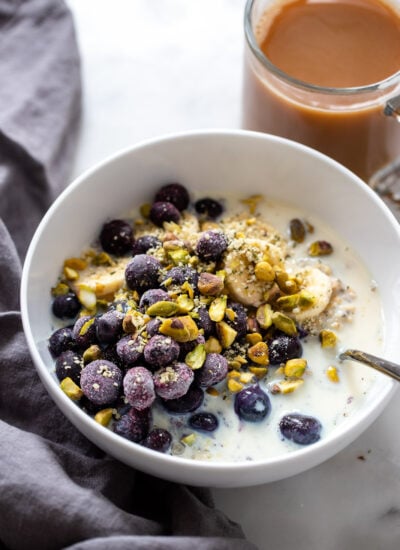
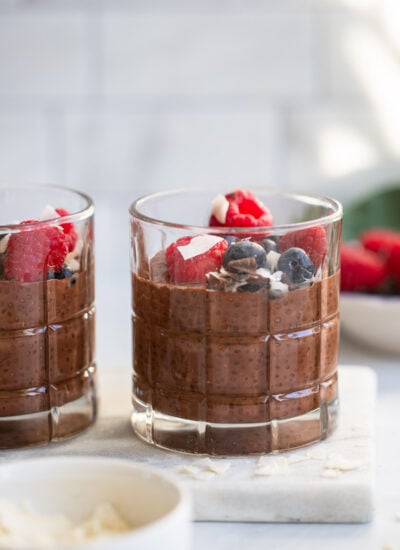
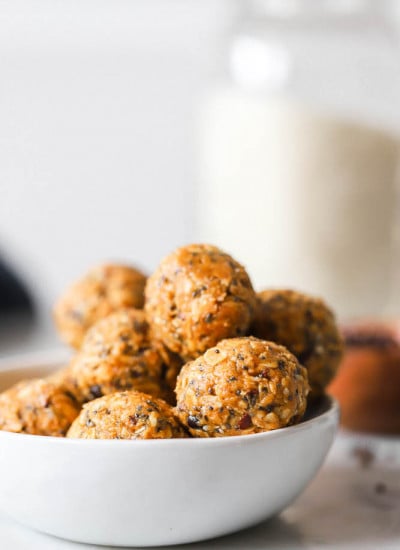
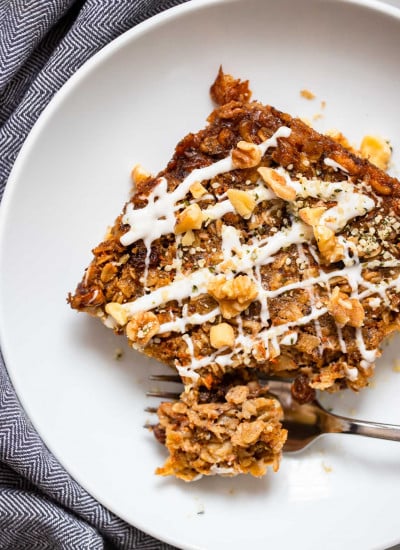
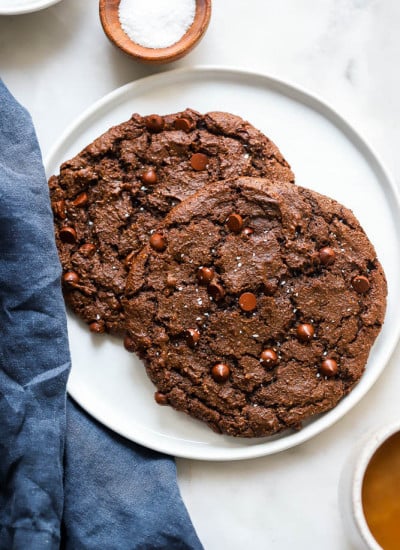
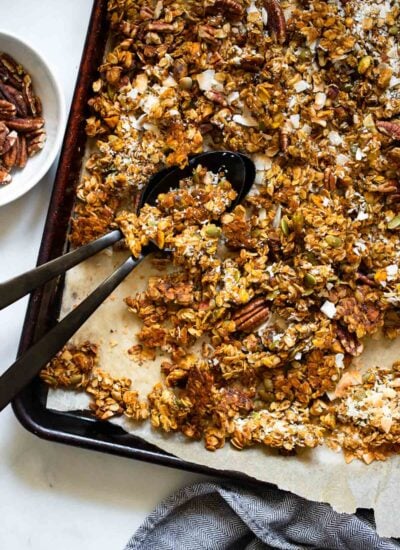
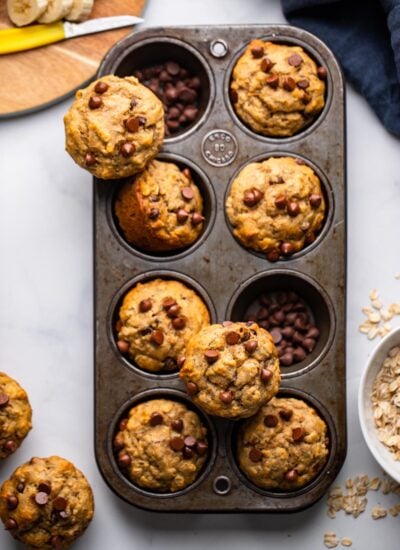
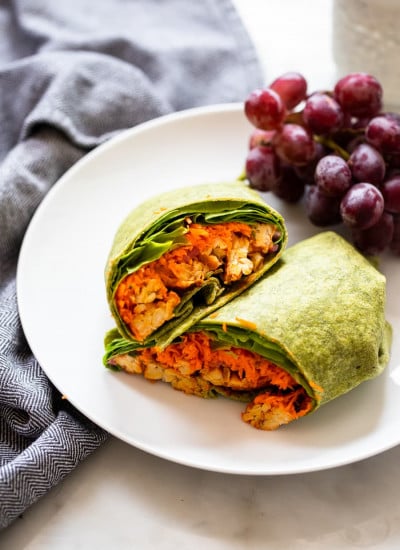
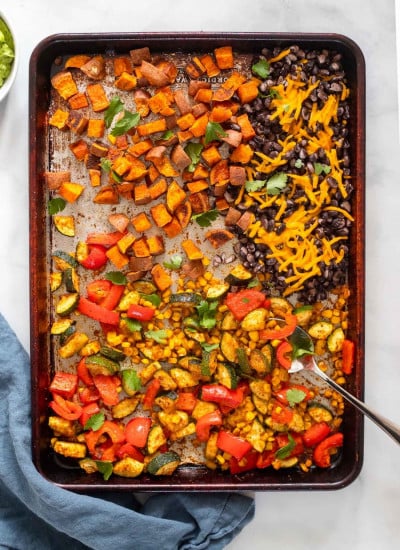
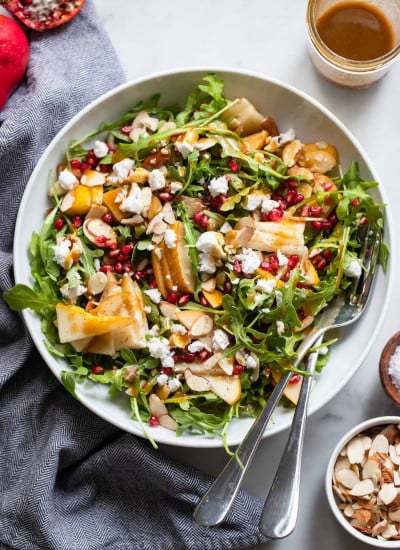
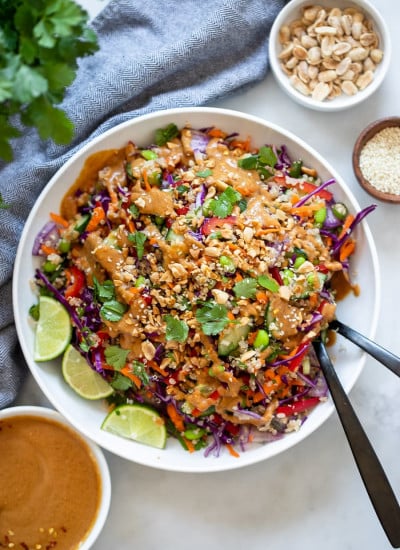

Comments & Reviews
Ha! I was half tempted to put a link to one of the great chia pet commercials from the 90s. 🙂 Who knew "the gift that grows" would be the next health food?!
Hey Debbie,When I saw the title of this post, I thought to myself "these can't be the same seeds as ch-ch-ch-chia pets" but yes they are. That's awesome! I would have tried them just on that fact alone but even better that they're good for you too. 🙂